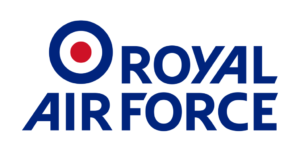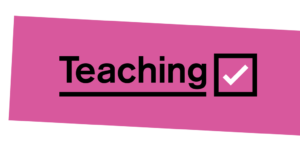
IT Support Technician careers guide & job profile
IT technican jobs mean more than telling people to turn the computer off and on again (though that’s a good start!)
Getting into IT support careers
Also known as: Service desk analyst, IT user support technician, IT helpdesk technician, service desk technician, or IT service engineer.
Your job as an IT support technician is to figure out software and hardware problems for computer users. Then you can give them solutions to make them happy computer users again.
Organisations give you training and often also give you step by step guides to follow for common problems. This helps you give customers exactly the kind of IT support they need.
Working hours
As an IT support technician, you would typically work 30-40 hours a week. In many places, this is a standard 9 to 5 job. Some organisations might offer vacancies for shift work (for example, if they are offering their customers 24/7 IT support round the clock.
Where do IT support technicians work?
Often you will work in an office or call centre as part of an IT support team. It’s quite a social job, even when you’re busy. It’s becoming more common to do this job from home, as well – so long as you have a good internet connection and can be given the equipment you need. This is known as remote working.
How Much Money Can You Earn As An IT Support Technician?
These LMI Job Trends give you a sneak peek of how much you could earn starting out for this career, and how much your salary could grow with experience.
Salary guide for IT support jobs
On average, IT support staff earn between £16,000-£50,000 depending on the location and employer. However, with time, experience, training and promotion you can earn up to £60,000 or more if you start specialising in digital databases, software development or web development.
These figures are intended as a guide only.
Skills you need to become an IT support technician
Useful skills to put in your CV for IT support jobs:
- Diplomacy and communication skills to explain technical things in a way that’s easy to understand. Frustrated customers with computer issues may not always be able to explain their problem very clearly using technical language, so you have to help them through it.
- Ability to work independently and as part of a team
- Good telephone skills and customer service skills – customers will feel like you’re really there for them
- The ability to multitask and manage your time
- Problem solving skills to help computer users feel happy again. Your training will help you solve those problems!
How do you get these skills?
Vocational qualifications and work experience will help you build these skills over time.
Build Your Skills With the FREE Young Professional Programme

London tech careers are in YOUR reach.
Salary? Jobs? Training? You got it. No experience? No problem. You've got the power. We'll give you the support!
What Qualifications & Training Do You Need For IT Support Careers?
School, College And Training
IT support is a job where your skills and willingness to learn new things are more important than your qualifications. However, getting IT qualifications could help you start in a more senior role. Employers may ask you to be educated to GCSE or A Level standard (or the equivalent) and to have basic digital skills.
A college course in IT support or computer may help, as will previous work experience in customer service.
These IT qualifications are useful (but not essential):
- Advanced GCE in applied IT
- A-level or H grades in ICT
- Level 3-4 BTEC professional certificate in networking
- Edexcel entry level certificate in ICT
- HNC/HND course (you may need at least one A-level or two H grades to apply)
Traineeships and Apprenticeships
If you’re a school leaver with GCSEs or S grades (grades 9-4 / A*-C) including English and maths, you could apply for an IT traineeship or Apprenticeship and build your skills and knowledge over time. With IT support apprenticeships you will earn a salary, get hands-on training with your employer AND do part-time study towards an IT qualification that could take you far in your career.
University and graduates
Higher qualifications for IT support careers include:
- IT Foundation degree
- IT Degree (you may need at least two A-level or three H grades to apply)
You don’t need to specialise in maths, science or IT to get into IT careers as a graduate. You can often learn on the job, or apply for IT graduate schemes that train you. IT apprenticeships and IT degree apprenticeships would also be a good fit for your experience and skills.
Career Development
Once you are an experienced IT support technician you may start to think about taking your career to the next stage. With the knowledge you would have gained, you could progress to a more senior management role in the IT support team. You could also change careers to move into technical sales, or get extra IT qualifications to become a network engineer or web developer. IT support is a great way to find out more about different digital careers and which ones might interest you.
What Work Experience Do You Need For IT Support Jobs?
Valuable experience for this role includes…
- work experience involving customer service (useful for dealing with all those customer queries)
- work experience involving basic digital skills
- attending free or paid IT courses (face to face or online) in coding or web skills
- Work shadowing (even if it’s just for a day)
- Work placements in a company
- Work placements on a college or university course
What Does An IT Support Technician Do?
Example daily job responsibilities
- Answering queries from computer users to help understand and fix their IT problems
- Keeping track of the work you’re doing, recording issues logged and solutions found
- Maintaining and fixing equipment – which could be computers but also things like projectors or printers, depending on the organisation
- Setting up new equipment and upgrading current systems to the latest version
- Training people in the organisation so that they know how to use any new or upgraded systems
You could work in a call centre, giving advice to the public by phone, email or online chat windows. You could also work ‘in-house’, which means you are working for just one organisation or company to help their staff, customers or students (if you are working in a school or college).
These Youth Friendly Employers offer great opportunities
These Youth-Friendly Employers might be able to help you get great digital jobs, training or experience! Take a look.
Digital Career Guides
View job descriptions with average UK salary, useful qualifications and a variety of routes into this career.
Digital Career Guides
View job descriptions with average UK salary, useful qualifications and a variety of routes into this career.
See All Our Youth-Friendly Employers

























YES! I Want More Free Careers Help...
So what are you waiting for? Grab your future.

























